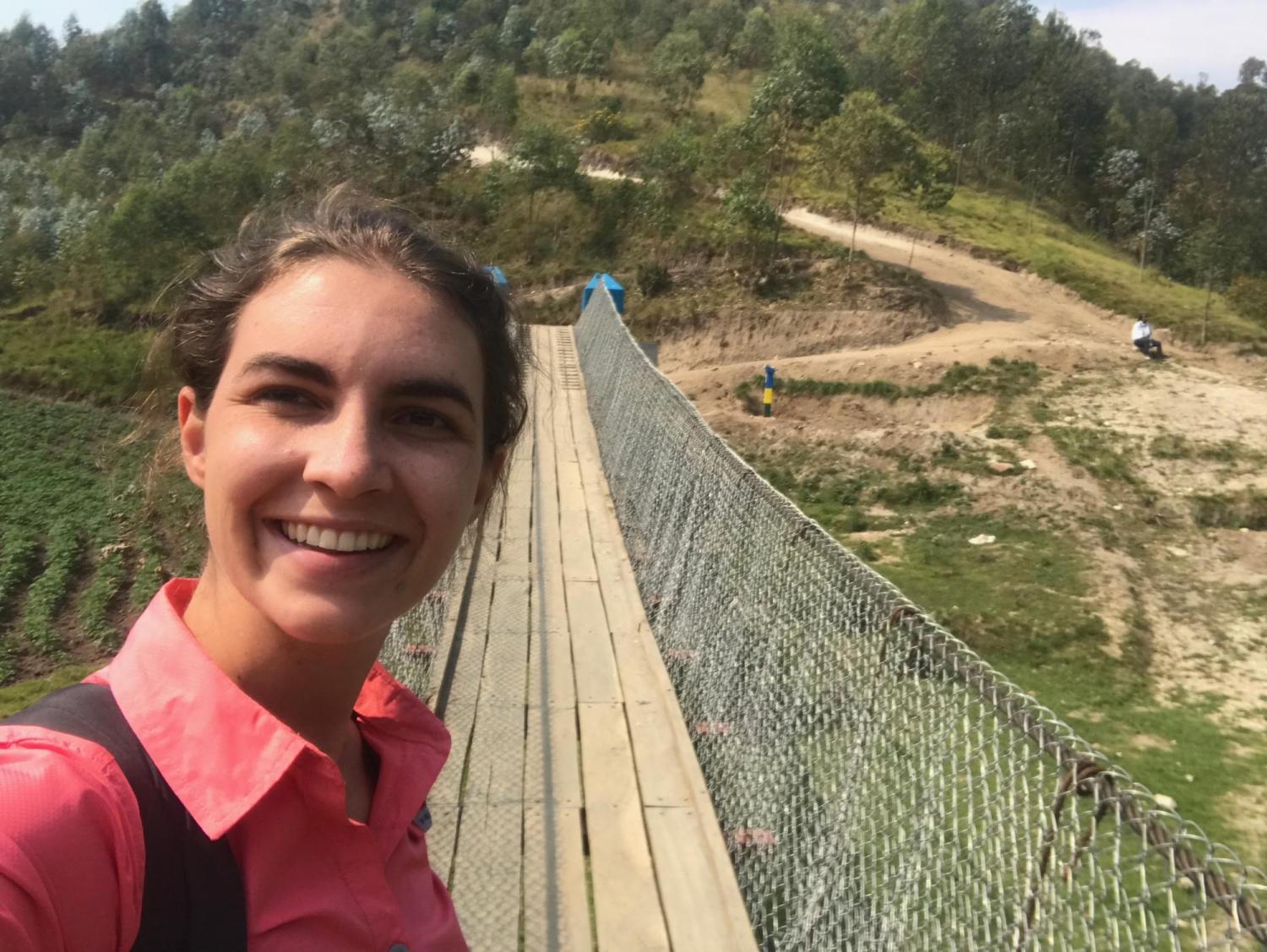Outstanding graduate hopes to continue international development work

Sally Gerster graduates this month with a concurrent bachelor’s degree in architectural engineering and master’s in civil engineering, specializing in structural engineering.
During her time at CU Boulder, she was involved in the campus’s Bridges to Prosperity (now Engineers in Action) chapter, studied abroad at the National University of Singapore and participated in a research project in Ecuador, earning her recognition as one of the college’s Outstanding Undergraduates for International Engagement.
She shared some of her reflections on the importance of global experiences and cultivating cultural understanding:
Global experiences are important for students because they expand students’ knowledge beyond campus and open their minds to new people, places and ideas. During my time abroad, I learned so much about myself and the world around me. These experiences have shaped who I am today, and I’m eternally grateful for these opportunities. The friendships, memories and lessons learned will be with me wherever I go.
I will never forget one particular interaction with a Rwandan friend during my six-month stay in that country. While there, I was managing my master’s project related to rural bridge infrastructure and split my time about half and half between living in the city and visiting rural villages.
My closest colleague and now my dear friend, Marie-Claire Nikuze (M.C.), grew up in one of these rural villages. She taught me so much about Rwandan life. I absorbed as much as I could. No matter where in the world I’m visiting, I strive to adapt to the new life I’m exposed to. I put concerted effort into understanding the culture and truly getting to know local people in order to fully immerse myself. It’s an immense effort – to be a foreigner, or a “muzungu” as Rwandans say.
The project required M.C. and me to visit 12 villages, which means we saw about half the country! Most people in the rural villages did not speak English, and I relied heavily on M.C. for help with communication. Following one of our later trips, M.C. and I were talking, and she said to me, “You know, when we’re in the villages, people say that you look like a muzungu, but you act like a nice Rwandan woman. We don’t meet many muzungus like you.” I was so touched. Recognition from local people that I have truly opened myself up to their way of life is the greatest compliment.
Having utmost respect for people and culture is absolutely critical for anyone hoping to have a positive impact in places they visit. In order to improve livelihoods in a community, you must first understand how that community currently lives. Only then can you potentially share your knowledge in a meaningful way to help ameliorate issues. I will carry this concept and the conversation I had with M.C. with me as I continue my journeys.
I recommend every student take advantage of global opportunities. You learn so much about other cultures, but you also learn so much about yourself. My best advice is to get out of your comfort zone and immerse yourself in local life, wherever you go. This is how the most memorable friendships and experiences are made. You’ll feel lonely and stressed at times, but always remember to just keep going, because too quickly your time abroad will be over. It will fly by, no matter how long you’re away, so make the most of it! Many opportunities that are offered while you’re a student are not as easy to come by later in life. Students, this is your chance to explore!
As a proud CU graduate, I will begin my career in structural engineering and hope to continue working in international development. My overall goal is to use my knowledge of engineering and project management to help empower vulnerable communities worldwide.


